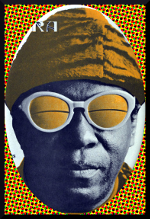coding again
Coding is interesting.
Well that’s an obvious statement. I fall short of calling it fun, but it is very interesting to me - another kind of fun.
At some point I need to make a connection between my improving coding skills and my academic work. Essentially, I am ranging into the area known as the digital humanities. What I need to do is research the digital humanities to figure out where I fit - this collection of HTML, CSS, and JavaScript skills needs to mean something with regard to my work. Maybe, for the moment, this just means that I continue blogging as I have been doing. In the end, however, these skills need to add up to something academically substantial - something that helps my teaching and scholarship.
Brainstorming about this for a moment. What would be helpful for my teaching is to create some sort of database of materials I can use for teaching. Maybe the blog is enough, though a full website would be more comprehensive and substantial. The idea, in the long run, is to create something that saves me from having to repeat myself in the classroom or in class assignments. This may be a separate website, or it could be another version of the pulamusic site. Really, what I need to do is create an online database of teaching materials that is both useful for my teaching and interesting to the general public.
One way to start might be to post my class PowerPoint presentations online, including links to media. I have a sizable collection of rough PowerPoints from my American history and African American music history classes that I could somehow dump online. I need to figure out, though, how to either embed a PowerPoint presentation into a website, or how to reconfigure each presentation into web pages. It sounds like a lot of potential work, but if there is some tool that could help me convert the presentations that would really work best.
All of the presentations for the American history courses include embedded videos from Crash Course that should probably be added to the site separately. Crash Course US History is particularly interesting because it is written, I think, using the same two-volume textbook I have used in teaching the courses. At least I think they use the same text, given that they make reference to the author, Eric Foner, in a number of the videos as well as the fact that the videos follow the same narrative as Foner’s books. I love how complementary the videos are with the text. Having the students view the videos in class is just another way of emphasizing and complementing the content of each chapter.
But somehow I think I am missing the broader impact of the digital humanities on academic work. A website is cool, but much of the digital humanities has to do with using the processing power of computers to deal with large datasets. Maybe a database of teaching materials suffices, but I have a feeling that I am just hitting the tip of the iceberg. In the end, this just confirms for me that I need to keep banging away at improving my coding skills. As I move along I need to keep thinking about how it intersects with my academic work. That’s the way to go - slow, steady, and always forward.
